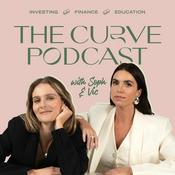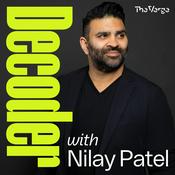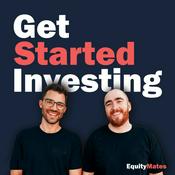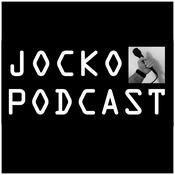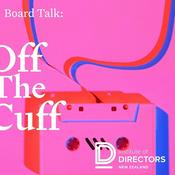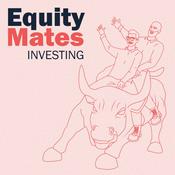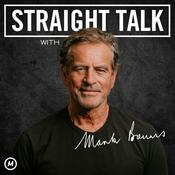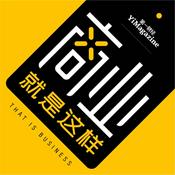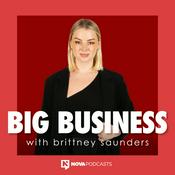7 episodes
James McPherson of JimmyRum: From Marine Engineer to Australia's Rum Pioneer — Visiting 70 Distilleries, Scaling to 11,000 Bottles a Year, Eyeing Global Exports and Building a Thriving Mornington Peninsula Community. (Episode 7 - James McPherson)
26/11/2025 | 52 mins.In this episode of The Distillers Institute Podcast, host Anne Gigney interviews James McPherson, founder of JimmyRum, shares his remarkable journey from marine engineer to one of Australia's leading rum makers. He talks about visiting 70 distilleries across the world before launching his brand, building a thriving distillery and venue in Mornington Peninsula, and producing over 11,000 bottles annually. James opens up about his passion for reshaping Australia's rum culture, his export ambitions, and how he's fostering community through craftsmanship. He also reveals the challenges of scaling, educating consumers, and navigating excise hurdles. This inspiring chat uncovers the grit, creativity, and vision behind JimmyRum's success.
A glimpse into the questions Anne posed to James McPherson:
Thinking back about 10 years or so, tell us about how your idea of JimmyRum came about?
James McPherson shared that the idea for JimmyRum began in jest, when he was working as a marine engineer in Singapore and facing redundancy. Tired of people asking what he'd do next, he jokingly said he'd make rum — but the thought stuck. One night, while in a cheap hotel in Western Australia, he realized there were craft beers everywhere but almost no craft spirits in Australia. That sparked his curiosity, and after researching, he discovered it was possible to make rum locally. What began in jest soon turned into a passion, leading to the birth of JimmyRum.
Tell us about that road trip — you visited 70 distilleries around the world; what did you learn from it?
James McPherson explained that his road trip covered 70 distilleries across three months, starting in Tasmania, then through Perth, North America, the Caribbean, and Europe. He explored everything from tiny 100-litre setups to massive column still operations, learning firsthand what worked and what didn't. Its an approach we share at The Distillers Institute, and the experience taught him the importance of community, sharing knowledge, and designing a distillery with scalability in mind. He also discovered how open and passionate distillers were worldwide, which inspired him to bring that same energy to Australia. That journey, he said, was the foundation of what JimmyRum became.
What did you have to do to educate the market and consumers about rum in Australia?
James said educating the Australian market about rum was one of his toughest but most rewarding challenges. When he started, most people only knew commercial brands like Bundaberg or Bacardi, so he had to show that rum could be premium, diverse, and world-class. He focused on tastings, events, and direct conversations — often turning skeptics into fans one glass at a time. His goal was to shift perceptions and help people discover that there's a rum style for everyone. As he put it, "You don't like rum — you just haven't found the right one yet."
How did you decide on the size, scale, and setup of your distillery and equipment?
James McPherson shared that the decision on JimmyRum's size, scale, and setup came from observing other distillers during his travels. He noticed many started small and quickly hit production limits, unable to grow without major reinvestment. Determined not to repeat that, he planned for long-term growth from day one — choosing a larger still, a spacious site on the Mornington Peninsula, and infrastructure that could handle future expansion. His rule was simple: buy the biggest still you can afford, design for the next decade, and ensure your facility can evolve. This forward-thinking approach became a core strength of JimmyRum's success.
Has the excise cap changed how you plan and run your business?
James McPherson explained that the excise cap has had a major impact on how he plans for growth. He said once a distillery exceeds the rebate limit, it faces a "valley of darkness," where the sudden jump in excise payments can cripple cash flow. To prepare, he's focused on scaling quickly through exports — since exported spirits aren't subject to excise or GST — and improving efficiency to manage rising costs. He believes small distilleries must sprint through that difficult phase with solid financial planning, or they won't survive beyond five years purely on bottle sales.
What's been your greatest challenge in this journey so far?
James McPherson said his biggest challenge has been maintaining mental resilience and balance through the ups and downs of running a distillery. He quoted Steve Jobs, saying passion is vital because "any sane person would give up after five minutes." Between financial pressure, regulations, and constant problem-solving, he's learned that grit, adaptability, and the right mindset are essential. He also emphasized not doing it alone — having partners, support, and people to share the emotional load makes all the difference.
In three to five years, what will JimmyRum look like when we come back to visit?
James McPherson painted an exciting vision for JimmyRum's future. In the next few years, he plans to have a new 15-metre still installed as a glass-walled centerpiece, a second level added to the venue for events and live music, and expanded barrel houses and fermenters to support large-scale production. He aims for JimmyRum's white cane spirit from the continuous still to be available in bars nationwide and for the brand to become Australia's go-to alternative to mainstream rums. His long-term dream? Turning JimmyRum into a destination distillery — a must-visit experience like the great rum estates of the Caribbean.
Quotable quotes from our special The Distillers Institute podcast guest:
What started as a joke about making rum became the best decision of my life — James McPherson
If you're building a distillery, buy the biggest still you can afford and plan for ten years, not one — James McPherson
Passion keeps you going when logic says you should've given up long ago — James McPherson
I don't just want to make rum, I want to change how Australia thinks about rum — James McPherson
We're not just building a distillery, we're building a community that grows together — James McPherson
Scaling a small distillery isn't about luck, it's about grit, planning and a lot of sleepless nights — James McPhersonFrom Rugged Bluff to Global Acclaim – Chris Fraser on Launching Bluff Distillery, Winning UK Product of the Year & Using Wild Seawater to Cool the Still in His Bold Mission to Craft the World's Most Distinctive Gin. (Episode 6 - Chris Fraser)
12/8/2025 | 48 mins.In this episode of The Distillers Institute Podcast, host Marcel Thompson interviews Chris Fraser, founder of Bluff Distillery, shares his remarkable journey of building a premium gin brand in the remote fishing town of Bluff, New Zealand. From launching in 2024 to winning Product of the Year in the UK, Chris unpacks the grit, strategy, and innovation behind their success—including using wild seawater to cool their still and creating a custom bottle that sets them apart. He talks about navigating startup challenges, building the right team, and the power of branding in a saturated market. Chris also dives into how staying true to place has shaped every aspect of their product. This is a must-listen for anyone interested in bold ideas, resilience, and redefining what's possible in small business.
A glimpse into the questions Marcel posed to Chris Fraser:
Could you tell the audience today about how the idea for the Bluff Distillery company actually came about?
According to Chris Fraser, the idea for Bluff Distillery began during a food producers meeting at the historic Ocean Beach site in Bluff, where a casual conversation sparked the vision of starting a distillery in a rugged yet scenic location. The thought stayed with him, and after some reflection, he saw its potential and began laying the groundwork for a multi-year project focused on team-building and meeting compliance requirements.
What's the URL for Bluff Distillery so people can check it out?
Chris has shared that the official website for Bluff Distillery is bluffdistillery.com. The brand is also active on social media, including Instagram and Facebook, where you can follow their journey and stay updated on new releases. There's even a newsletter sign-up at the bottom of the site for exclusive updates.
May I ask who helped to design the bottle, and who ended up producing the bottle for you?
According to Chris Fraser, the bottle was inspired by a hand-drawn sketch of a Japanese glass fishing float and brought to life through a collaborative design process involving his team and branding specialists. After many failed attempts with manufacturers who said it couldn't be done, they finally partnered with a French-owned company in China that took on the challenge. The unique bottle became a bold symbol of their brand's identity and commitment to quality.
Have you got thoughts around where you'd like the business to be in three to five years?
Chris has shared that Bluff Distillery has big ambitions to become a global brand while staying rooted in Bluff. They're already exporting to two countries and expanding into more, with plans for larger container orders and increased production. Their facility has the physical capacity to grow, and they're exploring adding a second still to meet future demand.
Are there any other innovations that you've seen or implemented that really stood out in your distilling business?
According to Chris Fraser, one standout innovation is their use of seawater from Foveaux Strait to cool their still condenser. By tapping into a massive aquaculture system already in place, they reduce energy use and enhance sustainability. This environmentally conscious system is not only rare—it's virtually one-of-a-kind in the world of distilling.
If there was one piece of advice that you'd like to share about starting a distilling business, what would that be?
Chris has shared that the most important advice is to do your homework—especially with people who aren't family or friends. He emphasizes the value of getting honest feedback from unbiased sources and being ready for the unexpected. Startup journeys are full of challenges, and how you deal with setbacks will define both your product and your growth as a business owner.
Quotable quotes from our special The Distillers Institute podcast guest:
We craft spirits where the salt of the sea whispers in every sip – Chris Fraser
Innovation isn't just about the liquid, it's about the soul of the story – Chris Fraser
Bluff isn't just a location, it's a liquid adventure – Chris Fraser
Every bottle is a journey from the edge of the world – Chris Fraser
Distilling isn't just a craft, it's a passion carved by rugged determination – Chris FraserCam Mackenzie of Four Pillars Distillery on Growing from a Yarra Shed to Global Gin Fame: 3x Intl Gin Producer of the Year, Hall of Fame, & Building a Fun, Innovative Aussie Brand with Award-Winning Spirits. (Episode 5 - Cam Mackenzie)
04/7/2025 | 1h 13 mins.In this episode of The Distillers Institute Podcast, host Anne Gigney interviews In this episode of The Distillers Institute Podcast, host Anne Gigney interviews Cam Mackenzie, co-founder of Four Pillars Distillery. Cam reveals how he turned a bold idea into Australia's most awarded gin brand, taking Four Pillars from a small Yarra Valley startup to a global sensation crowned International Gin Producer of the Year three times. He shares insider stories of innovative creations like Bloody Shiraz Gin, landing a major partnership with Lion, and building a team and culture that fueled rapid growth. Packed with business wisdom, laughs, and the inspiring journey of turning passion into world-class success, this episode is a must-listen for anyone dreaming big.
A glimpse into the questions Anne posed to Cam Mackenzie:
How did Four Pillars come to be? What was that initial conversation like between you and your co-founders?
According to Cam, Four Pillars began almost by accident. After years in the wine industry, he was craving something hands-on and entrepreneurial. Catching up over gin and tonics with his friend Stu, they first toyed with starting a tonic water brand — but Cam wanted to be back on the tools, not behind a desk. Gin felt like the right fit. They brought in Matt Jones, a brand strategist, to help shape a proper business plan. What began as casual chats turned into a serious plan to create a premium, innovative Australian gin brand. In 2013, after plenty of planning (and Cam overcoming the fear of quitting his job with a mortgage and three daughters), Four Pillars officially launched, grounded in a partnership built on trust, complementary skills, and a shared vision.
What did the actual split of roles look like on the ground once you all got started?
Cam shares that the split was surprisingly natural. Cam ran production in the Yarra, while Stu and Matt, based in Sydney, handled brand, marketing, PR and strategy. They trusted each other fully and had a rule that no decision could be two against one—it had to be unanimous. That kept the partnership strong and aligned for a decade.
How did you know how much investment you needed, and how did you manage that big jump to your bigger vision in the Yarra Valley?
According to Cam, they didn't truly know how much investment they needed—he says they did rough forecasts that looked like a bloodbath for the first few years, then wisely doubled the figure. They raised funds early from friends and family, their "ginvestors," which gave them enough to pay themselves, design a bespoke bottle, and build a strong brand foundation. When the ideal site in Healesville came up, they made the bold move to buy it using their own super funds, putting "all chips in," which Cam admits was terrifying. But having supportive, hands-off investors allowed them to confidently scale up to their bigger Yarra Valley vision without compromising quality or the brand's identity.
Why was innovation — like Bloody Shiraz Gin — so important, and what did it bring to the brand?
Cam shares that innovation was at the heart of Four Pillars from day one. Gin had been boring for decades, so they were determined to shake it up. Bloody Shiraz Gin began almost accidentally when he soaked Yarra Valley Shiraz in their gin, creating a category-defining product that drove massive growth and showed customers and bartenders they could trust Four Pillars to surprise them.
So the big elephant in the room—your sale to Lion. How did that come about, and why was that the right move?
According to Cam, as Four Pillars grew, they faced a choice: cap their growth and just enjoy being a profitable business, or chase the original dream of building a truly global Australian brand. Lion offered a partnership that respected their culture and let them keep their early investors onboard. It ultimately gave them the scale, security, and resources to expand internationally.
What's been your biggest challenge over the last 10 years, and what are you most proud of?
Cam shares that the biggest challenge over the last decade was keeping up with rapid growth while staying true to their quality and values, plus maintaining strong communication across the business and between the founding partners. What he's most proud of isn't the gin or even the global awards—it's the team and culture they built at Four Pillars. Cam likens it to "Hawthorn in the '80s," a powerhouse group of people who genuinely cared, stayed for years, and grew alongside the company. Seeing talented people thrive—like their first part-time finance hire who is now director of operations for Lion's spirits portfolio—gives him the greatest satisfaction.
Any parting advice for people wanting to enter this industry or start their own distillery?
According to Cam, the best thing you can do is pick up the phone and talk to people—not just those who've succeeded, but also those who've stumbled. He says be ready to have your ideas challenged and interrogated, and actually ask people, "What's wrong with my idea?" rather than just hoping for praise. Cam compares it to having a good coach: they give tough feedback not because they dislike you, but because they know you (and your business) can be better. Ultimately, he encourages aspiring distillers to do the research, seek honest feedback, and not let anyone completely put them off if they believe in what they're building.
Quotable quotes from our special The Distillers Institute podcast guest:
Build the kind of business you'd actually love to work in—that's the real secret — Cam Mackenzie
If you've got a big idea, let people tear it apart; if it survives, it's probably worth doing — Cam Mackenzie
We didn't fit in anywhere, and that turned out to be our biggest advantage — Cam Mackenzie
Surround yourself with people smarter and kinder than you—it makes the ride a hell of a lot more fun — Cam Mackenzie
Sometimes the best strategy is to stop aiming and just fire; you'll figure it out on the run — Cam MackenzieKyle Skene of Strange Nature: How a 'Happy Accident' Turned Sauvignon Blanc Into Award-Winning Gin, Disrupted Global Spirits, and Scaled to $54/L Value with Just 2 Staff and a Bottle That Sells Itself. (Episode 4 - Kyle Skene)
11/6/2025 | 53 mins.In this episode of The Distillers Institute Podcast, host Marcel Thompson interviews Kyle Skene, founder of Strange Nature Distilling, who shares his remarkable journey from a decade in the spirits industry to pioneering a distinctive gin crafted from Sauvignon Blanc ethanol. By distilling this unique base with juniper, the result is a premium gin that commands a retail value of $54 per liter—substantially higher than the $8 per liter typically achieved by New Zealand Sauvignon Blanc. With an annual output of 70,000 bottles and revenues between $2 to $2.5 million, Strange Nature has earned global recognition. The brand's success is driven by its premium market positioning, award-winning packaging, and strategic partnerships, all contributing to the elevation of New Zealand's wine and spirits industries.
A glimpse into the questions Marcel posed to Kyle Skene:
Tell me a little bit about the idea behind Strange Nature Gin and indeed, the Strange Nature distilling business itself. And how did that actually come about?
Kyle Skene shared that the idea behind Strange Nature Gin began unexpectedly during his time in the wine industry at Giesen Brothers (with Theo, Alex and Marcel Giesen), after spending a decade in the spirits industry. While working on non-alcoholic Sauvignon Blanc, he became curious about the ethanol being removed during the de-alcoholisation process. In March 2020, during the early days of COVID, he received samples of this ethanol and, upon tasting it, had what he described as an "oh shit" moment—it was incredibly aromatic and flavorful. Recognizing its uniqueness, he contacted Alex Giesen and pointed out that while they had spent decades making wine, they had now inadvertently created a beautiful spirit. This moment marked the beginning of Strange Nature, a gin distilled from Sauvignon Blanc ethanol, uniquely paired with juniper, leading to a product that stood out globally for its flavor and origin.
What do you love most about growing your business? What's the thing that you really like the most about this journey?
Kyle Skene shared that what he loves most about growing his business is the evolution of the journey—starting with creating the brand, story, and packaging, and then embracing the challenge of taking it global. He finds great satisfaction in building a coalition of passionate people who believe in the story. For him, it's especially rewarding to contribute to and connect New Zealand's wine and spirits industries on a global stage.
Could you provide some insight into the scale of your operations? For example, production capacity in liters or bottles, team size, or sales volume—whatever details you're comfortable sharing?
Kyle Skene explained that Strange Nature operates with a lean model, partnering with experts for distillation and packaging while maintaining a core team of just two people. The business produces around 70,000 bottles annually, generating $2 to $2.5 million in revenue. Their operations remain small and efficient, focusing on premium positioning and strategic market segments rather than large-scale volume.
Any thoughts you can share around the next steps around scale, particularly with the focus on export markets?
Kyle Skene emphasizes strategic growth for scaling with a focus on export markets. Strange Nature leverages its unique Sauvignon Blanc ethanol base for premium positioning, ensuring scalability through steady byproduct supply and automation plans. By adopting a "niche within a niche" strategy, they target less competitive markets, such as secondary U.S. states and duty-free outlets in Southeast Asia. Strategic partnerships with experts in distribution and retail, like RNDC, Total Wine & More and Federal Merchants & Co, are pivotal. Bespoke packaging and compelling storytelling enhance global appeal, while a focus on premiumization over volume drives sustainable growth. Patience, focus, and aligning with market dynamics underpin their success.
What do you think has been the greatest challenge you've had around putting the concept and building not only just the production side of things, but just the Strange Nature business itself?
Kyle Skene identifies staying focused amidst numerous opportunities as the greatest challenge in building the Strange Nature business. With many ideas and external suggestions, the key difficulty lies in resisting distractions and adhering to a clear strategy. Additionally, funding growth while ensuring reinvestment aligns with their premium positioning requires careful prioritization of resources. Surrounding the business with the right shareholders and experts has been crucial for maintaining alignment with long-term goals, enabling them to navigate challenges while staying true to their vision of sustainable and strategic growth.
What would you say has been the biggest challenge in developing Strange Nature—not just on the production side, but in building the business as a whole?
Kyle Skene states that the biggest challenge in developing Strange Nature has been maintaining focus while navigating countless opportunities and ideas. Balancing strategic growth with resource constraints requires disciplined decision-making, especially in prioritizing market segments and resisting distractions that deviate from their core goals. Additionally, reinvesting effectively to sustain premium positioning and scaling production without compromising quality has been critical. Surrounding the business with the right partners and shareholders has helped ensure alignment with their vision, enabling Strange Nature to grow sustainably while staying true to its unique value proposition.
If there was one piece of advice you would give to someone who's just starting out, what would that be?
Kyle Skene advises those starting out to be exceptionally clear about what their brand stands for and the market segment they aim to succeed in. Focus on defining your product's unique value and aligning it with the right distribution channels, whether retail, on-premise, or direct-to-consumer. He emphasizes the importance of patience, consistency, and spending time in the market to learn from real-world feedback. Ultimately, staying true to your strategy while resisting distractions will position you for sustainable success.
Quotable quotes from our special The Distillers Institute podcast guest:
Staying focused on your strategy is the hardest but most rewarding challenge – Kyle Skene
Great brands are built by knowing what you stand for and sticking to it – Kyle Skene
The right partners bring more than money; they bring value and vision – Kyle Skene
Success comes from patience, clarity, and learning from every market interaction – Kyle Skene
The best way to grow is to think small, win big, and stay true to your story – Kyle SkeneFrom Kitchen Bench to Whisky Pioneer: Rob Auld MD of Auld Farm Distillery shares how they turned a 100-year-old family farm into a whisky haven with a bold "seed to sip" approach and nine grains grown on-site in Southland, NZ. (Episode 3 - Rob Auld)
07/4/2025 | 28 mins.In this episode of The Distillers Institute Podcast, host Anne Gigney speaks with Rob Auld from Auld Farm Distillery. Rob shares the story of how their kitchen bench idea in 2015 evolved into a significant distillery in New Zealand, highlighting their unique "seed to sip" approach as both a farm and distillery growing nine different grains. They discuss their product range, including whisky, gins made from origin grain spirits and their popular Usquebaugh. The conversation focuses on the upcoming release of their first single malt whisky in 2025 and the associated crowdfunding campaign. Rob also offers insights into the growth of the New Zealand distilling industry and Auld Farm Distillery's future plans.
Support Auld Farm Distillery's Crowdfunding journey to release their first single-malt whisky! Crafted on-site in Southland, NZ, every bottle follows a true seed-to-sip journey—from grain to glass.
A glimpse into the questions Anne posed to Rob Auld:
Tell us about Auld Distillery, what you are, how big you are, what you make?
Rob explained that Auld Farm Distillery started as a kitchen bench idea in 2015. After a business development course, they formed the company in 2017 and began laying down casks. By April 2021, they had become the third biggest producer in the country, which was not their intention; they simply wanted to make the best products from their own grains.
What inspired you to start a distillery, and particularly one focused on grain-based spirits?
Rob Auld shared that the inspiration to start a distillery came from his family's deep agricultural roots and a desire to create something value-added from their farm produce. The idea to focus on grain-based spirits stemmed from exploring innovative and sustainable crops that could offer both environmental benefits and a unique point of difference in the crowded spirits market. He saw the unique grains on their farm as something to explore and picked up the skills and knowledge they needed to create a delicious range of unique whisky blends that captured the region and the farm's terroir.
How does Auld Farm Distillery manage its farm and distillery operations?
Rob explains that Auld Farm Distillery's operations are entirely property-based, including growing nine different grains on-site. Malt Barley is their primary grain for single malt production, although unique varieties like purple wheat and black barley are also integrated. Rob highlights both the challenges and excitement of experimenting with these grains to achieve distinctive whisky flavors. Managing the farm alongside distillery operations makes for a busy schedule, handled primarily by Rob and Toni Auld, with assistance from their dedicated team.
What is the purpose of Auld Farm Distillery's crowdfunding campaign, and why is this release so special?
Rob discusses their crowdfunding campaign on PledgeMe, which aims to raise funds to support the release of their anticipated single malt whisky. This initiative provides supporters the chance to invest in the brand and receive rewards such as whisky bottles, tasting packs, and exclusive seed-to-soup experiences. Rob emphasizes the value of sharing their passion and storytelling with customers and giving people the chance to 'own a little piece of Auld's story'. Set for release in 2025, Rob is particularly excited about the exceptional quality and distinctive flavor profile of the single malt whisky.
How does the size of the distillery affect production, and what approach does Auld Farm Distillery take to create unique flavors?
Rob describes the distillery's compact yet efficient setup, highlighting a daily brew capacity of 500 kilos of grain. They operate two stills—a 1000-litre wash still and a 400-litre spirit still—which enable them to produce rich, flavorful spirits. Rob reflects on the learning curve involved in utilising different grains but stresses that the resulting complex flavors make the process rewarding. The distillery's fermentation and distillation techniques are specifically tailored to showcase the distinct characteristics of grains grown directly on the farm.
What advice would you give to someone looking to start a distillery or a craft spirits business?
Rob says those looking to start a distillery or craft spirits business can start small, and experiment extensively to discover unique approaches and flavors. He emphasizes authenticity, urging distillers to share the genuine passion and story behind their brand, which fosters strong emotional connections with customers. Using local ingredients and natural resources helps develop distinct flavor profiles, while maintaining a readiness to learn, adapt, and embrace trial-and-error is crucial. Engaging the community early through initiatives like crowdfunding builds shared ownership and support.
Quotable quotes from our special The Distillers Institute podcast guest
Great spirits start with great stories—and ours begins in the paddock – Rob Auld
Everything we do at Auld Farm Distillery is grown right here on the property—it's farm to bottle in the truest sense - Rob Auld
Crowd funding lets people be part of our story; it's not just whisky, it's a shared passion - Rob Auld
We started Auld Farm Distillery on the kitchen bench—now we're one New Zealand's largest distillery's. That still amazes me - Rob Auld
The whisky's flavor is shaped by everything on farm—the grains, our spring water, even the sunshine and rain. Nature does half the work - Rob Auld
People don't just buy whisky; they buy into the journey and the community behind it - Rob Auld
More Business podcasts
Trending Business podcasts
About The Distillers Institute
Listen to The Distillers Institute, The Property Academy Podcast and many other podcasts from around the world with the radio.net app
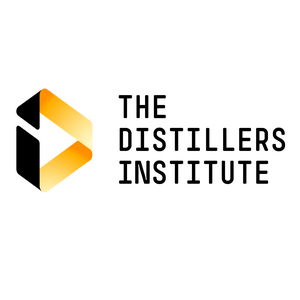
Get the free radio.net app
- Stations and podcasts to bookmark
- Stream via Wi-Fi or Bluetooth
- Supports Carplay & Android Auto
- Many other app features
Get the free radio.net app
- Stations and podcasts to bookmark
- Stream via Wi-Fi or Bluetooth
- Supports Carplay & Android Auto
- Many other app features


The Distillers Institute
download the app,
start listening.




